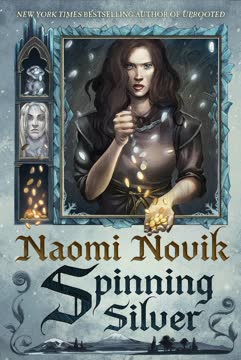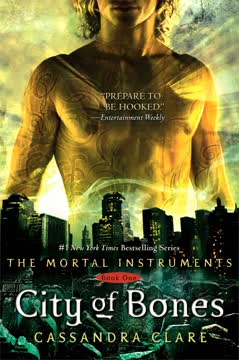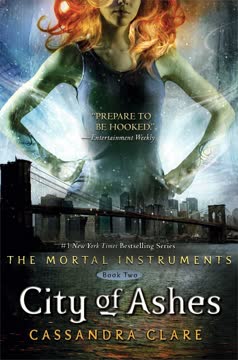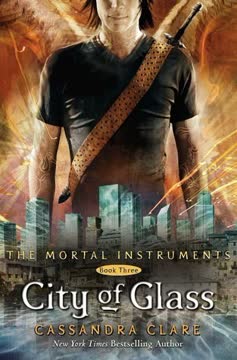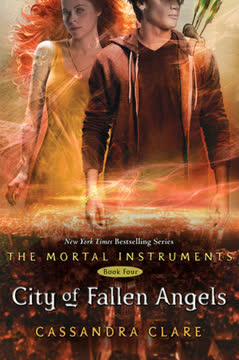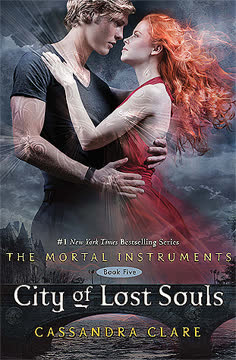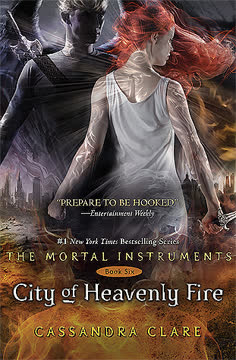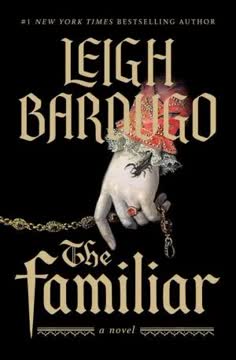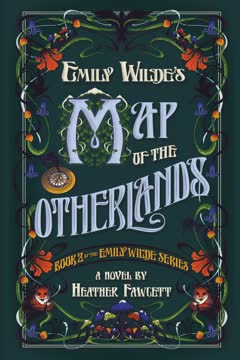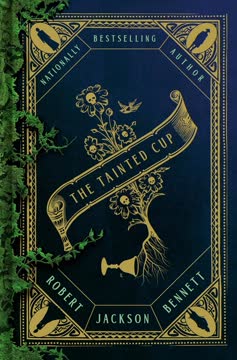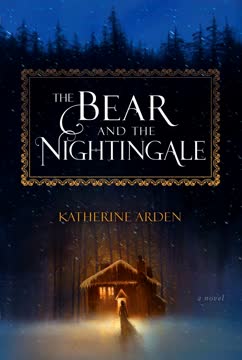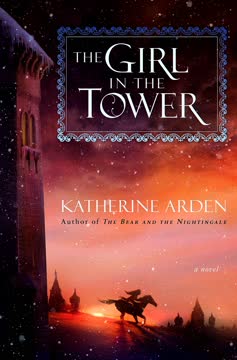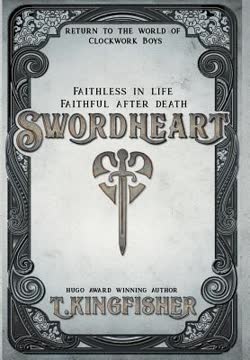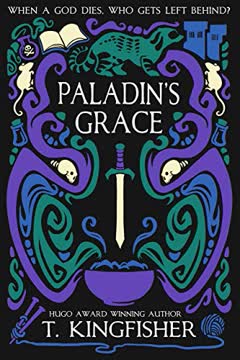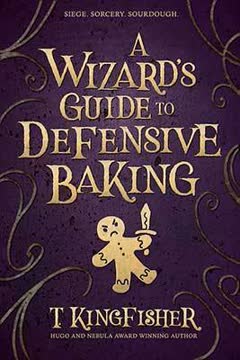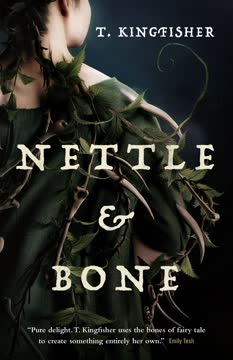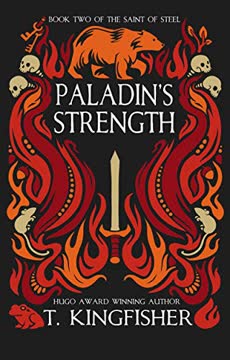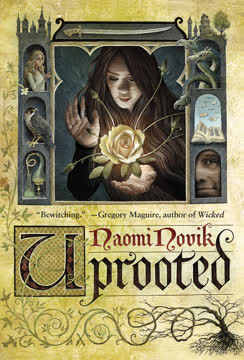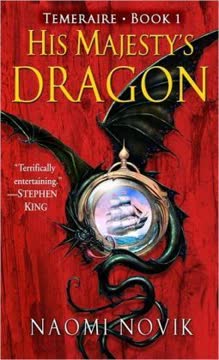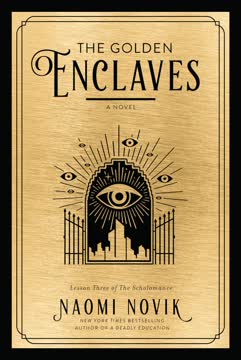Plot Summary
Winter's Debt Unpaid
Miryem, daughter of a gentle but inept moneylender, grows up in a small, unnamed town beset by increasingly harsh winters. Her father's inability to collect debts leaves the family impoverished and her mother ill. When Miryem takes over the family business, she discovers a coldness within herself, necessary to survive and reclaim what is owed. Her newfound ruthlessness brings prosperity, but also alienation from her parents and neighbors, who resent her success and whisper old stories about moneylenders and devils. The world is shadowed by the Staryk, mysterious winter beings who raid for gold, and the cold seems to deepen with every year.
Coldness in the Heart
Wanda, a peasant girl, endures poverty and abuse at the hands of her father. When her father's debt to Miryem cannot be paid, Wanda is sent to work for the moneylender's family. The work is hard, but the household is warm and fair, and Wanda finds a sense of safety and purpose. She begins to learn numbers and writing from Miryem, and dreams of saving enough to escape her father's control with her brothers. The coldness of the world is mirrored in the coldness Wanda must adopt to survive, but in the Mandelstam household, she glimpses a different way of living.
Bargains and Boundaries
Miryem's success as a moneylender transforms her family's fortunes, but also hardens her. She takes on Wanda's brothers as helpers, and her business expands into neighboring villages. Her grandfather, a respected moneylender in the city, encourages her, and Miryem's reputation for turning silver into gold grows. Yet, the Staryk's road draws closer to her home, and strange footprints appear in the snow. The villagers' resentment simmers, and Miryem's mother warns her of the dangers of being seen as in league with the Staryk. Miryem's cold resolve is both her shield and her curse.
Silver into Gold
The Staryk, drawn by Miryem's boast that she can turn silver into gold, leave her a bag of fairy silver and demand she return it as gold. Miryem, terrified but determined, takes the silver to the city and has it crafted into jewelry, which she sells to the local duke for a handsome sum. The Staryk return, each time with a greater demand, and Miryem must use all her cunning and business acumen to fulfill their impossible tasks. Each success brings her closer to the Staryk's world, and the threat of being claimed as their queen.
The Staryk's Challenge
The Staryk king sets Miryem three tasks: to turn increasing amounts of silver into gold, each within a shorter time. With the help of city craftsmen and her own clever trading, Miryem succeeds, but the final task is overwhelming—a mountain of silver to be changed in days. The Staryk's promise is clear: fail, and she will be turned to ice; succeed, and she will become his queen. Miryem's pride and fear drive her to accept, even as she realizes the cost may be her freedom and her life.
Three Tasks, Three Fates
As Miryem races to complete the Staryk's final task, she enlists the help of Wanda, her brothers, and the city's craftsmen. The work is grueling, and the threat of the Staryk looms ever closer. Meanwhile, Irina, the duke's daughter, becomes entangled in the magic of the Staryk silver, which makes her beautiful in the eyes of all who see her. The tsar, possessed by a demon of fire, is drawn to Irina, and a marriage is arranged. The fates of Miryem, Wanda, and Irina become intertwined, each facing their own impossible bargain.
Chains of Obligation
Miryem is taken by the Staryk king to his glass mountain, crowned as his queen, and bound by the cold, unyielding laws of his people. She discovers that the Staryk's endless winter is a defense against the demon-possessed tsar, who feeds on the life of the land. Irina, now tsarina, uses her Staryk silver to escape her husband's demonic hunger, slipping between worlds through mirrors. Wanda and her brothers, fleeing their father's violence, find refuge in a witch's house that exists in both worlds, cared for by unseen hands.
The Tsar's Shadow
Irina's marriage to the tsar is a prison, as he is possessed by Chernobog, a demon of fire who seeks to devour her soul. Irina bargains for her life, using the Staryk silver to hide in the winter world. She learns that the demon's power is tied to the suffering and death it causes, and that the Staryk's winter is both a shield and a curse. The tsar's court is a place of intrigue and danger, and Irina must navigate it with cunning, seeking allies and a way to break the demon's hold.
A Queen's Price
Miryem, forced to act as the Staryk's queen, discovers the true nature of their world and the price of her own magic. She bargains with the Staryk for answers, learning that their endless winter is a desperate defense against the demon's hunger. Wanda, in the witch's house, finds that kindness and work can create a home, even in the midst of magic and danger. The three women's stories converge as they each seek a way to break free from the chains of obligation and claim their own destinies.
The Witch's House
Wanda, Sergey, and Stepon make a home in the witch's house, cared for by unseen magic. They repair and improve the house, and Wanda learns to trust in her own strength and the bonds of chosen family. The house becomes a place of safety and healing, a rare haven in a world of cold and violence. Miryem and Irina both find their way to the house, and together they begin to unravel the secrets of the Staryk and the demon, forging an alliance that will change the fate of both worlds.
The Circle of No
At a wedding in the city, the Staryk king arrives to claim Miryem, but Wanda, her brothers, and the Mandelstams refuse to let her go. They form a circle, holding the Staryk with a silver chain, and refuse his bargains. The tsar and Chernobog arrive, and a battle of fire and ice erupts. The circle of "no" holds, and the Staryk is bound, but at great cost. The demon is driven back, but not destroyed, and the balance between winter and summer is shattered.
The Demon's Bargain
The Staryk king is imprisoned, and Chernobog feasts on his power, threatening to destroy both worlds. Irina bargains with the demon, promising to bring him the Staryk king in exchange for the safety of her people. Miryem, Wanda, and their families are caught in the aftermath, seeking a way to save both the Staryk and the mortal world. The cost of mercy becomes clear, as every choice carries a price, and the line between savior and destroyer blurs.
The Wedding's Turning
At Basia's wedding, the fates of all the characters converge. The Staryk king is brought to the demon, and a battle of magic and will ensues. The circle of family and friends holds fast, refusing to let go, even as the world trembles on the edge of destruction. Miryem, Irina, and Wanda each make their final bargains, choosing love, loyalty, and hope over fear and vengeance. The wedding becomes a turning point, where the old order is broken and a new path is forged.
The Breaking of Winter
Miryem, with the help of her friends and family, frees the Staryk king and breaks the chain of endless winter. The demon is driven from the tsar, and the balance between the worlds is restored. Spring returns to the land, and the people rejoice, but the cost of victory is heavy. The Staryk retreat to their mountain, and the mortal world is left to heal. The bonds of love and family, forged in hardship, endure.
The Cost of Mercy
The characters reckon with the consequences of their choices. Miryem, changed by her time as the Staryk queen, must decide where she belongs. Wanda and her brothers claim a new home, free from fear. Irina, now free of the demon, must rule a kingdom and live with the memory of what she has done. The world is changed, and the scars of winter remain, but there is hope for renewal and forgiveness.
The Tunnel's Choice
Miryem faces a final choice: to save the Staryk king and his people, she must risk her own life and the safety of her family. She chooses mercy, guided by the memory of kindness and the bonds of love. The cost is high, but she refuses to become a monster, even when the world demands it. The tunnel becomes a symbol of the choices we make in darkness, and the hope that light can be found on the other side.
The Last Bargain
Miryem and the Staryk king forge a new bargain, promising peace between their peoples. The witch's house becomes a bridge between worlds, a place where magic and humanity can coexist. Wanda, Sergey, and Stepon plant the seed of a new beginning, and the promise of spring is fulfilled. The demon is banished, and the world is remade by the choices of those who refused to give in to fear and hatred.
The New Spring
Spring returns to the land, and the characters find their places in the new world. Miryem is welcomed home, changed but loved. Wanda and her brothers build a new life, free from the past. Irina rules with wisdom and compassion, her kingdom safe at last. The Staryk retreat, but the memory of their magic endures. The world is not perfect, but it is full of hope and possibility.
The Staryk's Promise
The Staryk king comes to Miryem's home, seeking her hand in marriage according to her people's laws. He brings gifts and promises, and together they forge a new alliance between their worlds. The past is not forgotten, but the future is open. The bonds of love, family, and community endure, stronger than any curse or winter.
Home and Hope
Miryem, Wanda, and Irina each find a place to belong, shaped by the choices they made and the love they found. The world is changed, but hope endures. The story ends with a wedding, a promise, and the knowledge that even in the coldest winter, warmth can be found in the hearts of those who refuse to give up.
Characters
Miryem Mandelstam
Miryem is the daughter of a Jewish moneylender, hardened by poverty and her father's failures. She takes over the family business, discovering a coldness within herself that allows her to thrive in a world that punishes the weak. Her ability to "turn silver into gold" is both literal and metaphorical, drawing the attention of the Staryk and setting her on a path of impossible bargains. Miryem's relationships are defined by duty and pride, but beneath her cold exterior lies a deep longing for love and belonging. Her journey is one of self-discovery, as she learns the cost of power and the value of mercy. Her development is marked by her willingness to sacrifice for others, even as she struggles with the consequences of her choices.
Wanda Vitkus
Wanda is a peasant girl who escapes an abusive home by working for Miryem's family. She is strong, practical, and deeply protective of her younger brothers, Sergey and Stepon. Wanda's trauma shapes her worldview, making her wary of kindness and slow to trust. Through her work and the support of the Mandelstams, she learns to value herself and dream of a better life. Wanda's journey is one of healing and empowerment, as she claims agency over her fate and builds a new family. Her loyalty and courage are tested by magic and violence, but she remains steadfast, embodying the power of ordinary goodness in the face of extraordinary challenges.
Irina Alexandrovna
Irina is the plain daughter of a powerful duke, used as a pawn in political games. She is married to the tsar, who is possessed by a demon, and must use her wits and the magic of Staryk silver to survive. Irina's intelligence and resourcefulness allow her to navigate the dangers of court and magic alike. She is driven by a desire for agency and respect, and her journey is one of self-assertion. Irina's compassion and sense of justice lead her to make difficult choices, balancing personal happiness with the needs of her people. Her development is marked by her refusal to be a victim, and her ability to forge alliances and shape her own destiny.
The Staryk King
The Staryk king is the ruler of the winter folk, driven by a desperate need to protect his people from the demon's hunger. He is bound by the rigid laws and bargains of his kind, and his pride is both his strength and his weakness. His relationship with Miryem is fraught with tension, as he both admires and resents her defiance. The Staryk king's development is marked by his willingness to bend, to recognize the value of mercy and alliance. His pride is ultimately tempered by love and necessity, and he becomes a symbol of the possibility of change, even for the most inhuman.
Chernobog (The Demon)
Chernobog is the demon of fire that possesses the tsar, feeding on suffering and death. It is a force of pure appetite, indifferent to law or justice, and delights in breaking bargains when it can. Chernobog's relationship with Irina is predatory, but it is also bound by the bargains it makes. Its presence drives the conflict between winter and summer, and its defeat is necessary for the world's survival. Chernobog represents the dangers of unchecked desire and the cost of power gained through cruelty.
Tsar Mirnatius
Mirnatius is the young tsar, possessed by Chernobog and trapped in a life he never wanted. He is both victim and perpetrator, complicit in the demon's crimes but also powerless to resist. His beauty and charm mask a deep loneliness and pain. Mirnatius's relationship with Irina is complex, marked by fear, resentment, and a longing for connection. His development is a slow awakening to his own agency and the possibility of redemption, even as he is shaped by forces beyond his control.
Sergey Vitkus
Sergey is Wanda's younger brother, shaped by hardship and loss. He is loyal to his sister and determined to protect Stepon. Sergey's journey is one of growing strength and independence, as he learns to trust in himself and others. His relationship with Wanda is central to his identity, and his actions are motivated by love and duty. Sergey's courage is tested by magic and violence, but he remains a steady presence, embodying the resilience of the human spirit.
Stepon Vitkus
Stepon is the youngest of Wanda's brothers, a child marked by loss but not yet hardened by the world. He is sensitive and intuitive, often seeing what others miss. Stepon's innocence is both a vulnerability and a strength, allowing him to offer kindness and hope even in the darkest moments. His relationship with Wanda and Sergey is a source of comfort and stability, and his small acts of courage have a profound impact on those around him.
Rakhel Mandelstam
Rakhel is Miryem's mother, whose illness and suffering motivate much of Miryem's early actions. She is a source of warmth and compassion, embodying the values of family and community. Rakhel's quiet strength is a counterpoint to Miryem's coldness, and her love is a guiding force throughout the story. Her relationship with Miryem is complex, marked by both pride and sorrow, but ultimately defined by unconditional love.
Aron Moshel
Aron is Miryem's grandfather, a respected moneylender in the city. He is a figure of authority and tradition, guiding Miryem with both sternness and affection. Aron's wisdom and experience shape Miryem's understanding of the world, and his principles provide a moral compass in a world of shifting bargains. His relationship with Miryem is one of mutual respect, and his support is crucial to her success and survival.
Plot Devices
Interwoven Narratives and Multiple Perspectives
The novel employs a rotating first-person narrative, shifting between Miryem, Wanda, Irina, and others. This structure allows the reader to experience the story from multiple angles, deepening empathy and understanding. The interwoven narratives highlight the interconnectedness of the characters' fates and the ways in which individual choices ripple outward. The shifting perspectives also serve to reveal secrets and motivations that would otherwise remain hidden, creating dramatic irony and emotional resonance.
Fairy Tale Reinterpretation and Subversion
Spinning Silver draws on the structure and motifs of classic fairy tales—Rumpelstiltskin, the Snow Queen, and others—but subverts their expectations. The "turning silver into gold" is not magic, but hard work and cleverness; the "miller's daughter" is not helpless, but fiercely capable. The novel interrogates the roles of women in fairy tales, giving agency and voice to characters who are often passive or victimized. The use of fairy tale logic—bargains, names, impossible tasks—serves both as a plot engine and a means of exploring deeper themes.
Bargains, Promises, and the Power of Words
The story is driven by bargains, both magical and mundane. The Staryk and the demon are bound by the bargains they make, and the consequences of broken promises are dire. The power of words—names, oaths, blessings—recurs throughout, shaping reality and determining the characters' fates. The novel explores the tension between law and mercy, the letter and the spirit, and the ways in which language can both bind and liberate.
Magic as Metaphor for Power and Trauma
Magic in Spinning Silver is both wondrous and dangerous, a force that can heal or destroy. The Staryk's winter is a metaphor for trauma, isolation, and the desire for control; the demon's fire represents unchecked appetite and the cost of power gained through suffering. The characters' encounters with magic force them to confront their own wounds and limitations, and to find strength in vulnerability and connection.
Circles, Chains, and Community
The motif of circles—of hands, of family, of community—recurs throughout the novel, symbolizing protection, solidarity, and resistance. The circle of "no" that holds the Staryk, the wedding dance, the bonds of chosen family—all serve as counterpoints to the isolating power of winter and violence. The novel suggests that true strength lies not in domination, but in the willingness to stand together, to say no to injustice, and to care for one another.
Analysis
Spinning Silver is a masterful reimagining of fairy tale tradition, blending Eastern European folklore with a nuanced exploration of power, trauma, and agency. At its heart, the novel is about the cost of survival in a world that is often cold and unjust, and the ways in which individuals—especially women—can claim power without becoming monsters themselves. Through its interwoven narratives, the story examines the consequences of bargains, the limits of law, and the redemptive potential of mercy. The characters are shaped by their wounds, but also by their capacity for love and solidarity. The novel's subversion of fairy tale tropes—transforming helpless maidens into resourceful heroines, and monsters into complex beings—offers a powerful commentary on the importance of agency, community, and hope. In a modern context, Spinning Silver speaks to the enduring relevance of old stories, and the necessity of forging new ones that reflect the complexity and resilience of the human spirit. The lesson is clear: even in the coldest winter, warmth can be found in the bonds we choose to make, and the courage to say no to the world's cruelties.
Last updated:
Review Summary
Spinning Silver receives mostly glowing reviews, praised for its immersive storytelling, complex characters, and clever reimagining of Rumpelstiltskin. Readers appreciate the strong female protagonists, Jewish representation, and atmospheric winter setting. Many consider it superior to Novik's previous work, Uprooted. Some criticism includes slow pacing and confusing POV shifts. Overall, the novel is lauded for its magical prose, intricate plot, and exploration of themes like antisemitism and female empowerment, making it a favorite among fantasy readers.
The Mortal Instruments Series
Similar Books
Download PDF
Download EPUB
.epub digital book format is ideal for reading ebooks on phones, tablets, and e-readers.
